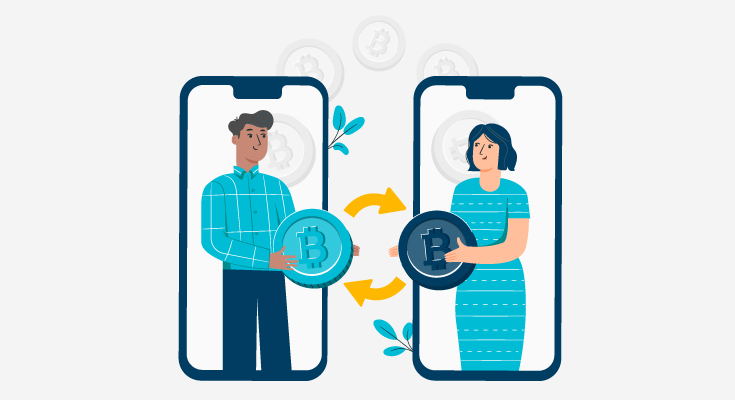In recent years, crypto loans have become a popular way for people to borrow money without selling their digital assets.
But as the industry grows, so does the question: Do you still need to complete KYC (Know Your Customer) to access these loans? Let’s break it down.
What Are Crypto Loans?
Crypto loans allow users to borrow money by using their cryptocurrency—like Bitcoin or Ethereum—as collateral.
Instead of selling your crypto, you lock it in a smart contract and receive a loan in stablecoins or fiat currency. Once you repay the loan, you get your crypto back.
This service can be useful for people who want quick access to cash while keeping their crypto investments intact.
What Is KYC?
KYC stands for “Know Your Customer.” It’s a process where users provide personal identification, such as a passport, ID card, or utility bill, to verify who they are.
KYC is common in traditional banks and regulated financial platforms. It helps prevent fraud, money laundering, and other illegal activities.
Do You Always Need KYC for Crypto Loans?
The answer depends on the platform you use. There are two main types of crypto lending platforms: centralized and decentralized.
1. Centralized Platforms – KYC Required
Platforms like BlockFi, Nexo, and Binance Loans usually require full KYC verification. These platforms operate under financial regulations and must follow laws in the countries they serve.
To use them, you’ll need to provide identification and sometimes proof of address or income.
Pros of centralized platforms:
- Often more secure and trusted
- Better customer support
- May offer lower interest rates
Cons:
- Requires full identity verification
- Limited privacy
- May not be available in all countries
2. Decentralized Platforms – No KYC (in most cases)
Decentralized finance (DeFi) platforms like Aave, Compound, and MakerDAO usually do not require KYC.
These platforms run on smart contracts, and users interact directly through their crypto wallets (like MetaMask). You can borrow against your crypto without revealing your identity.
Pros of DeFi platforms:
- No KYC needed
- Greater privacy and control
- Open to users worldwide
Cons:
- Higher risk (due to smart contract bugs or hacks)
- Limited customer support
- Can be harder for beginners to use
Why Some People Prefer No-KYC Loans
Many people in the crypto space value privacy and decentralization. They worry that giving up their identity defeats the purpose of using crypto in the first place. For them, DeFi platforms that don’t require KYC offer more freedom and financial independence.
Also, some users may live in countries where access to traditional banking is limited or restricted. For them, no-KYC crypto loans are a lifeline.
The Regulatory Shift
While no-KYC platforms are popular now, governments around the world are increasing pressure on crypto services to follow KYC and AML (Anti-Money Laundering) rules.
In the future, even DeFi platforms may be forced to adopt some form of identity verification.
Some DeFi protocols are already exploring “KYC-light” models using decentralized identity systems or on-chain reputation scores, which could offer a balance between privacy and compliance.
Final Thoughts
You don’t always need KYC to get a crypto loan—but it depends on the platform. Centralized platforms follow stricter rules and require full identity checks, while many DeFi platforms let you borrow without sharing personal information.
However, as regulations evolve, the crypto loan space may change. If privacy is important to you, now might be the time to explore DeFi options—just be sure to research risks before diving in.
Join Our Political Forum official 2025 WhatsApp Channel To Stay Updated On time https://whatsapp.com/channel/0029VaWT5gSGufImU8R0DO30


